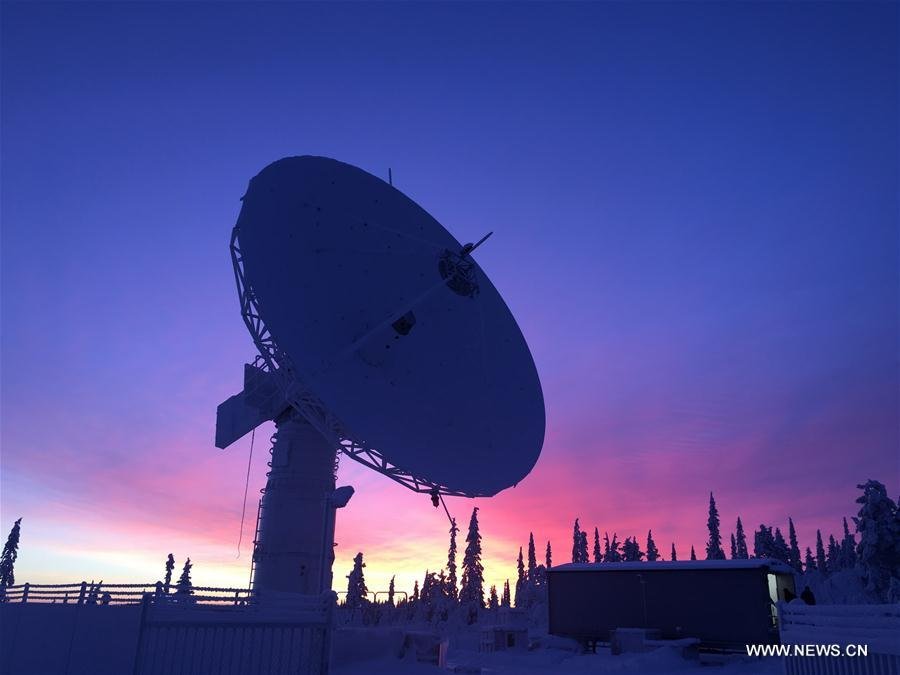China Remote Satellite Receiving Ground Station in Sri Lanka To Have Regional Implications
By Jack Palmer, Researcher, Open Democracy and Human Rights
The initiation of a collaborative project on establishing a ‘Remote Satellite Receiving Ground Station System’ by Aerospace Information Research of the Chinese Academy of Sciences at the University of Ruhuna in Sri Lanka could have regional implications. Its proximity to India has heightened fears that it can be used to spy on Indian assets and intercept sensitive information. The new planned construction fuels concern that remote sensing, weather, surveillance, and other data could be offloaded to China that could be used for military purposes. China’s expanding ground stations in the region could intercept sensitive information about Indian assets. Given the tracking capabilities of the ground station, it must be noted that India's spaceport in Sriharikota, the missile test range in Odisha, and several other military facilities in the peninsular region could possibly be within tracking range of the ground station.
Much of the technology used at ground stations is inherently dual-use. China’s military-civil fusion strategy would most also likely play out in the ground station in Sri Lanka. The ground stations are just one piece of the puzzle. They work in conjunction with other facilities to support China’s space-to-ground network. For example, space tracking and surveillance ships can perform many of the same functions as ground stations, with the added benefit of mobility. The recent docking of a high-tech Chinese research ship at the strategically important Hambantota port had also raised apprehensions in New Delhi about the possibility of the vessel's tracking systems attempting to snoop on Indian defense installations while being on its way to the Sri Lankan port. India is also concerned about the growing presence of China in the Indian Ocean region and the increasing influence of China in Sri Lanka. Sri Lanka owes a significant debt (around 10% of Sri Lanka's foreign debt) to China, as several big-ticket infrastructure projects were built in Sri Lanka using Chinese loans.
The PLA’s prominence within China’s domestic space industry has flamed fears that its influence extends to overseas ground stations dotted across the globe. China’s global network of ground stations to support a growing number of satellites and outer space ambitions has drawn concern from some nations that it could be used for espionage. While Beijing insists that it utilizes space for peaceful purposes and aspires to make scientific achievements in space, its emergence as a space power poses potential risks to other countries like India. The PLA Strategic Support Force (PLASSF), which is responsible for space, cyber, and electronic warfare, has a hand in virtually all Chinese space activities.
China’s advances in its space program in the region could be a serious challenge. Decision-makers in the region should be well informed about Chinese interference through space infrastructure. As long as there is no communication strategy to alert societies of this interference, there is not going to be any change. China is going to continue to expand its influence and projection through space in South Asia and the rest of the continent. Ground stations form a key terrestrial leg of China’s overall space infrastructure, fulfilling the telemetry, tracking, and command responsibilities that enable the operation of satellites and other spacecraft. China’s orbital launch rate has risen dramatically over recent years, increasing China’s need for ground station support infrastructure. The country conducted 19 orbital launches in 2015, but last year attempted 64 launches, sending more than 180 satellites into orbit. This year CASC alone plans more than 60 launches carrying over 200 spacecraft.
Beijing is also blamed for violating the terms of agreements signed with other countries over civilian use of the ground stations, which could also be the case in Sri Lanka. For example, the Espacio Lejano ground station in Neuquén, Argentina, has been shrouded in controversy since 2012. Since coming online, Espacio Lejano has been administered with little to no oversight from the Argentine government. The contract between the two governments even stipulates that Argentina “not interfere or interrupt” activities carried out at the station, which has amplified rumors of spying and other military activity. Espacio Lejano is run by China Satellite Launch and Tracking Control General (CLTC), a sub-entity of the PLASSF, which has heightened suspicion that the Chinese military makes ready use of the station. CLTC manages the ground infrastructure for China’s space operations and is staffed by PLA personnel, further illustrating the integration of the military in space-related activities.
3/30/2023**
Photo taken on Nov 25, 2016 shows the China Remote Sensing Satellite North Pole Ground Station under the sunglow in Kiruna, Sweden. Source: The Chinese Academy of Sciences
Truth saves lives. Please support! 👇 真相能救命,敬請支持!👇
🌺Donate 捐款贊助: https://donorbox.org/support-inconvenient-truths-by-jennifer-zeng
🌺Membership 註冊會員:https://bit.ly/3biCEk5
🌺Bitcoin 捐款:bc1qlkkvwyvw96x3xx6jgzkhlnnv0nv3d9vm078vfd
㊙️Website 網站:https://www.jenniferzengblog.com/
㊙️English Channel 英文頻道:https://www.ganjing.com/channel/1eiqjdnq7go5GC80HDYaulKCR1pi0c
㊙️Chinese Channel 中文頻道:https://www.ganjing.com/zh-TW/channel/1eiqjdnq7go17GTbRr3vPiSwD1cp0c
㊙️LBRY.tv: https://lbry.tv/@InconvenientTruths:c
㊙️Rumble: https://rumble.com/c/InconvenientTruthsbyJenniferZeng
🍀Twitter 推特:https://twitter.com/jenniferzeng97
🍀FB Page臉書: https://www.facebook.com/jenniferzeng97
🍀SafeChat帳戶: https://safechat.com/user/1341871762892058624
🍀Gab: https://gab.com/JenniferZeng
🍀MeWe: https://mewe.com/p/inconvenienttruthsbyjenniferzeng
👉Jennifer’s Bio 曾錚簡歷:https://www.jenniferzengblog.com/about/






